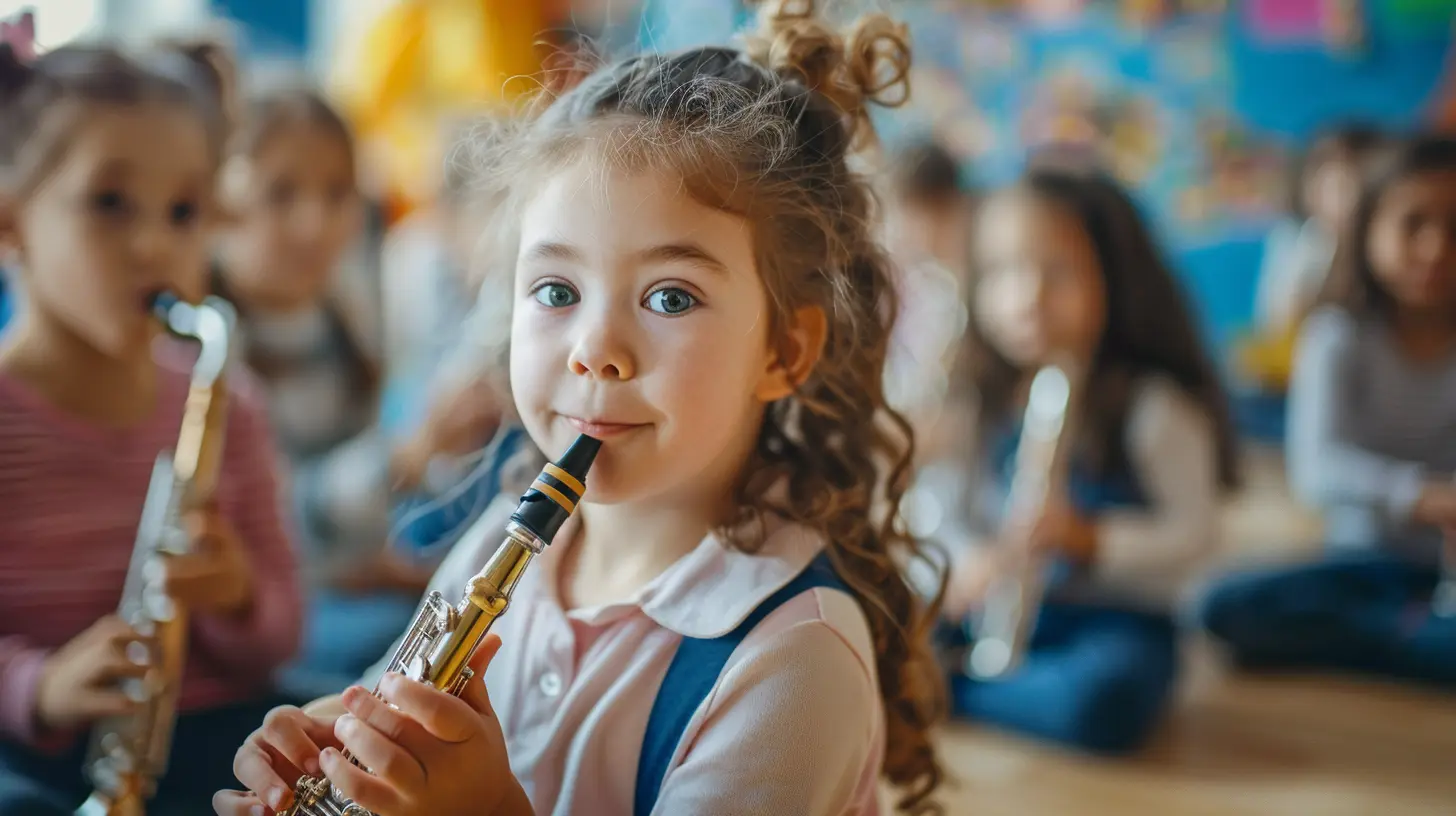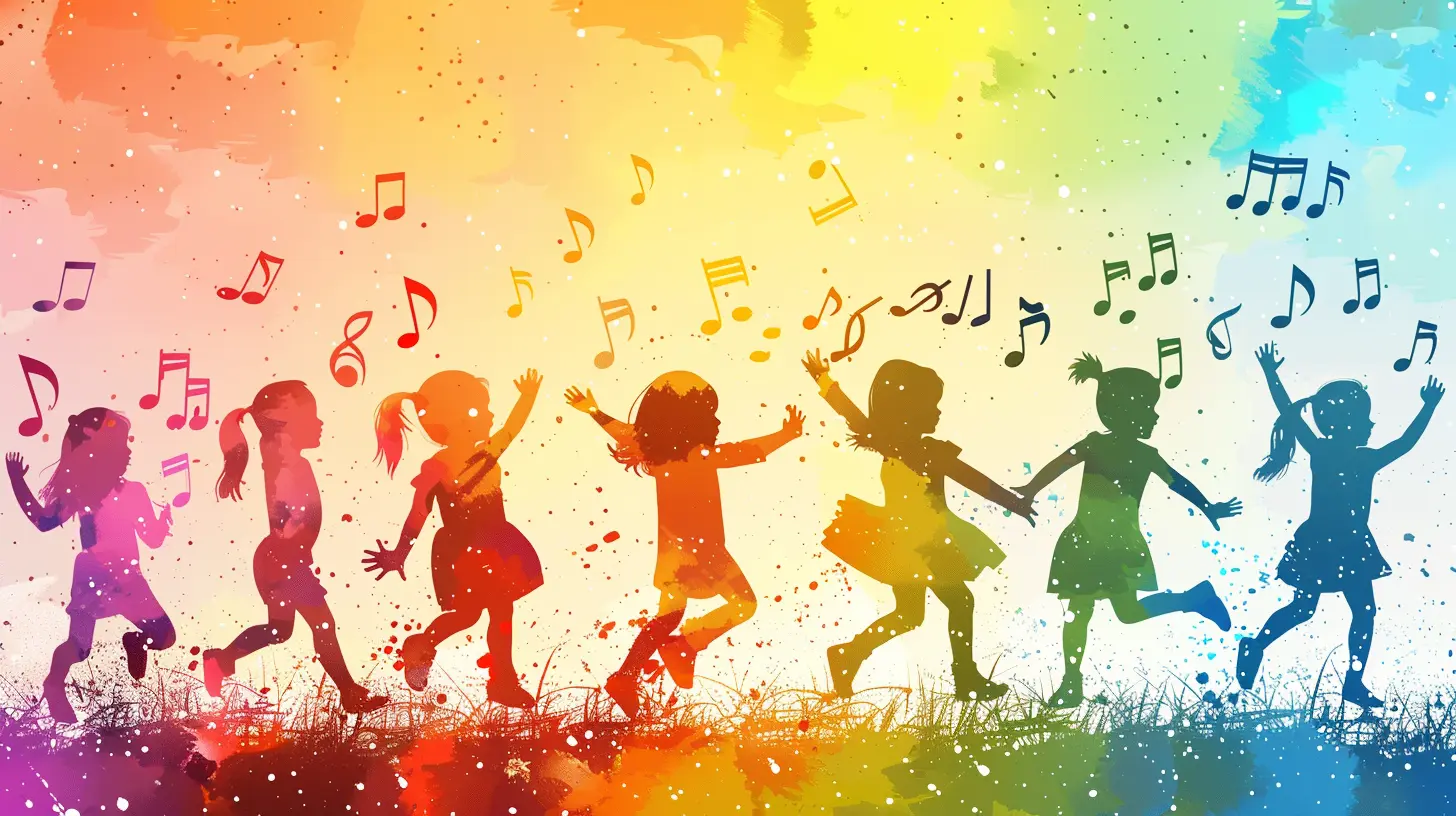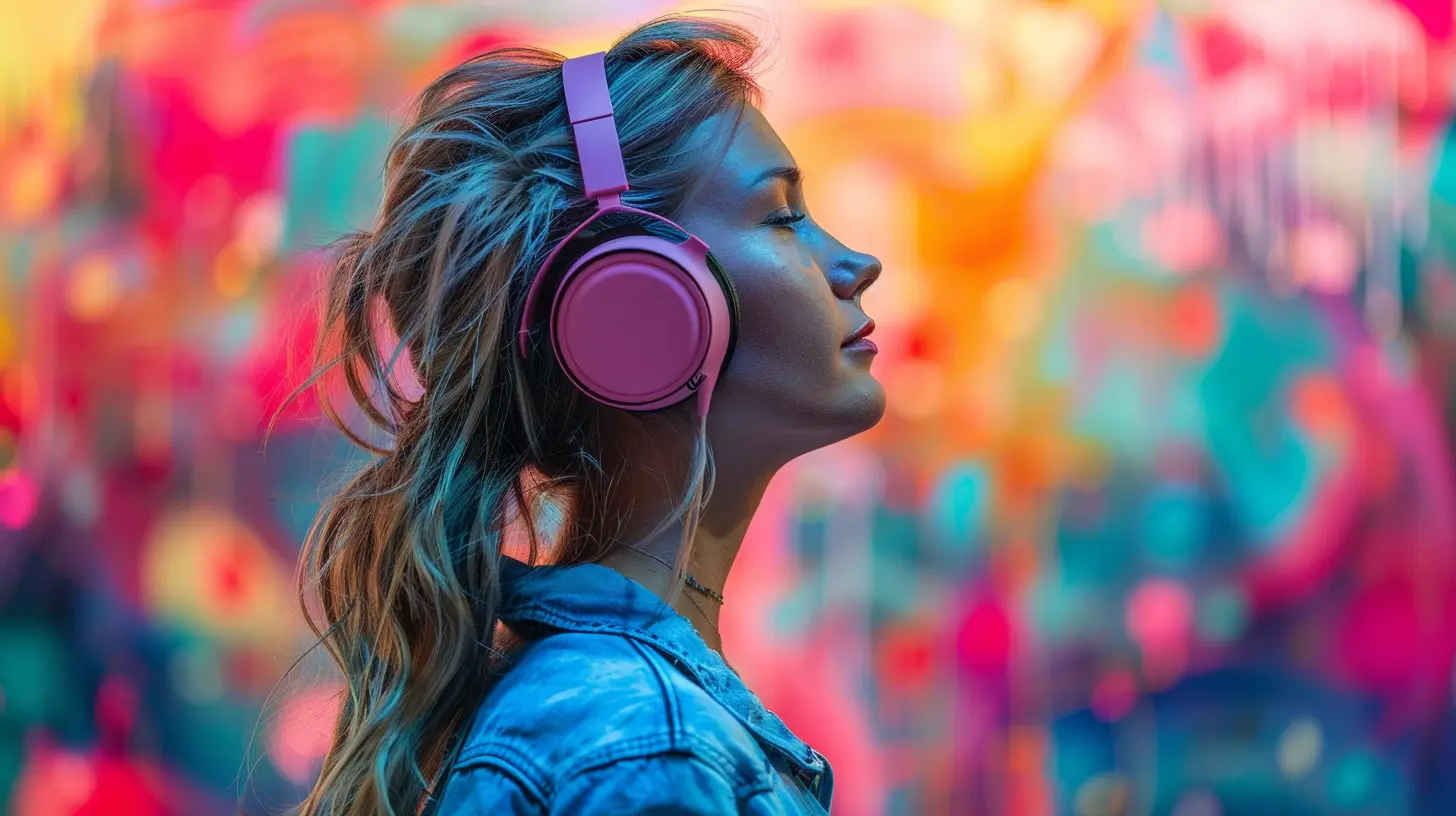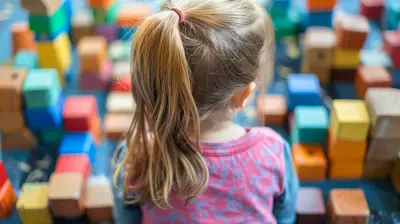How Music Enhances Emotional Intelligence in Students
17 July 2025
Emotions are a messy business, aren’t they? From excitement that makes your heart race to sadness that slows your steps, emotions shape how we experience life. For students still learning to manage all those ups and downs, emotional intelligence (EQ) is a superpower. But here's the kicker—developing EQ isn't just about talking feelings. Sometimes, it's about singing them. Or playing them on the piano. Or even listening to them on repeat.
That’s where music steps in.
Music isn’t just entertainment. It’s a full-blown workout for the brain and heart, especially when it comes to understanding emotions—our own and others'. Let’s unpack how music enhances emotional intelligence in students and why schools (and parents!) should start treating music as more than just a break from “real” learning.
What Is Emotional Intelligence, Anyway?
Before we dive into the music side of things, let’s get clear on what emotional intelligence actually is.Emotional intelligence is the ability to:
- Recognize your own emotions
- Understand what others are feeling
- Manage your emotional reactions
- Communicate emotions effectively
- Empathize with others
It’s like having a user manual for human interaction. And for students juggling school stress, friendships, and growing up, that manual can make a world of difference.
Why Emotional Intelligence Matters for Students
Let’s be real—academic success isn’t always about who memorizes the most facts. It’s about managing stress before exams, handling group work gracefully, and bouncing back from failure. Emotional intelligence helps students:- Build meaningful relationships
- Reduce anxiety and frustration
- Stay focused in class
- Handle peer pressure
- Communicate clearly and solve conflicts
In a world that’s getting faster and more complex, EQ is just as important as IQ.
So, How Does Music Come Into Play?
Okay, so how does music fit into all this emotional intelligence talk? Well, music is essentially emotion in sound form. Whether it’s a joyful rhythm or a melancholic melody, music speaks the language of feelings. And when students engage with music—by playing it, singing it, or even just listening to it—they’re tuning in to that emotional language.Let’s break it down.
1. Music Helps Students Recognize Emotions
Ever had a song hit you so hard it made you cry, even though you didn’t know why? That’s music triggering emotional awareness.Students who interact with music start to identify the emotional cues in melodies and lyrics. A fast, upbeat tempo often signals happiness or excitement. A slow, minor-key tune might feel more sad or thoughtful.
By identifying emotions in music, students start identifying them in themselves. They can begin to say, “This song feels anxious—do I feel that way too?” It's emotional mirror work, made fun.
2. Playing Music Builds Emotional Expression
Give a student a guitar, and watch them pour out feelings they didn’t even know they had. Playing music is a raw, personal experience, allowing students to channel their internal world without saying a word.- A drumbeat can express frustration.
- A flowing piano melody can showcase peace.
- A powerful vocal performance can be pure joy or heartbreak.
This ability to express emotion nonverbally gives students an alternative to bottling it all up—or worse, lashing out.
3. Music Fosters Empathy
Have you ever listened to a song and suddenly “got” what someone else was feeling? That’s empathy in action. Music gives students a window into other people’s experiences. Whether it’s the heartbreak of a country song or the struggle in a ballad, lyrics tell emotional stories.Students who learn to listen with intention—really hearing what the music is trying to say—start understanding emotions from different perspectives. That's empathy at its finest.
4. Group Music Activities Teach Social Awareness
Ever watched a band or choir perform? It’s not just about hitting the right notes. It's about listening to each other, blending together, and responding in sync. That takes serious emotional awareness.In a school setting, students in music groups learn:
- Teamwork and cooperation
- Patience and mutual respect
- Conflict resolution when disagreements happen
- Supporting one another during high-pressure performances
It’s like emotional bootcamp, but way more fun.
5. Songwriting Enhances Self-Reflection
Now, let’s talk songwriting. When students write lyrics or compose melodies, they dig deep into their emotional bank. Songwriting encourages personal exploration. They're asking, “What do I really feel?” and “How can I put that into words and music?”This process sharpens self-awareness, helps them process difficult feelings, and often leads to little breakthroughs. It’s journaling with a rhythm.
6. Music Supports Emotional Regulation
Think about it—what do people do when they need to calm down or get pumped up? They reach for music. That’s no accident. Music helps regulate emotions.For students, that means:
- Calm, instrumental tracks before a test to reduce anxiety
- Upbeat songs to shake off low moods
- Background music to focus during homework
Over time, students learn to pick their own “emotional playlist” to cope with different feelings. That’s real emotional intelligence in action.
7. Music and Mindfulness Go Hand in Hand
Mindfulness is all about being present, tuning into the moment. And what better way to do that than with music?When students practice deep listening—focusing on each note, each lyric—they’re grounding themselves. This hones attention, lowers stress, and improves emotional awareness.
It’s meditation, with a beat.
8. Music Encourages Positive Self-Image
Mastering an instrument, acing a solo, or even just remembering a tricky rhythm builds confidence. Music gives students tangible proof that they can do hard things—and that builds self-esteem.When students feel good about themselves, they’re naturally more in tune with their emotions and less reactive to stress or criticism.
Why Schools Should Prioritize Music Education
Here’s the tough truth—music programs are often the first to get cut when school budgets tighten. But considering how powerfully music supports emotional intelligence, schools should be doing the exact opposite.Strong music programs lead to:
- Better student behavior
- Improved focus and academic performance
- Stronger peer relationships
- Lower dropout rates
- Increased student happiness
In short, music isn’t just enrichment. It’s essential.
Making Music Part of Everyday Learning
You don’t need a fully stocked music room to bring music into the everyday learning environment. Here are a few easy ideas:- Let students start the day with a song that reflects their mood.
- Use musical prompts for journaling about feelings.
- Build playlists around certain emotions for classroom transitions.
- Encourage group songwriting or rhythm games during recess or free time.
Even a few minutes of music each day can make a big difference.
What Parents Can Do at Home
Parents, you’re part of the band too. Here’s how you can support emotional intelligence through music:- Share your own favorite songs and talk about how they make you feel.
- Ask your child to play you a song that matches their mood.
- Sing during routines—yes, even if you're off-key.
- Encourage learning instruments or joining community music groups.
You’re not just nurturing their musical talent—you’re helping them grow into emotionally intelligent adults.
Music + Emotions = Brain Power
Let’s not skip the science. Music fires up multiple regions in the brain—language areas, motor regions, the emotional centers. It connects left brain logic with right brain creativity. And that combo builds stronger, more flexible thinkers.When students engage with music, they’re literally wiring their brains for higher emotional awareness and smarter responses. It's neuroscience’s way of saying, “This stuff works.”
Final Thoughts
Music isn’t magic. It won’t solve every emotional challenge students face. But when used intentionally, it becomes one of the most powerful tools in the emotional intelligence toolbox.From recognizing emotions to building empathy, expressing themselves to regulating stress, students who engage with music develop deeper self-knowledge and stronger relationships. And they do it in a way that feels natural, fun, and human.
So, whether it’s through a violin, a Spotify playlist, or a classroom sing-along—let music do its thing. Let it teach. Let it heal. Let it love.
Because behind every great student is a song that helped shape their heart.
all images in this post were generated using AI tools
Category:
Music EducationAuthor:

Eva Barker
Discussion
rate this article
1 comments
Ursula Frye
What a delightful read! Music truly brings out the best in emotional intelligence for our students! 🎶✨
July 26, 2025 at 3:58 AM

Eva Barker
Thank you! I'm glad you enjoyed it. Music’s impact on emotional intelligence is truly inspiring! 🎶✨


